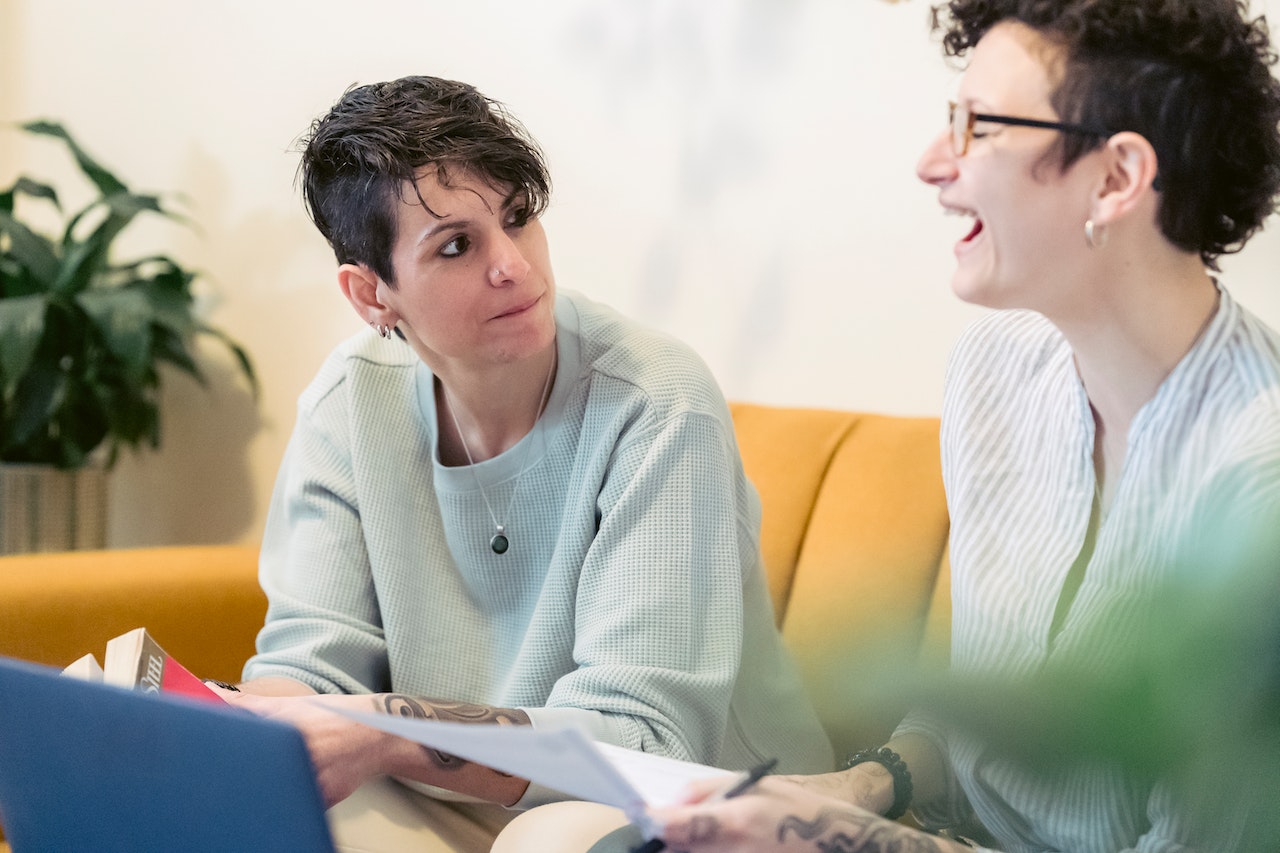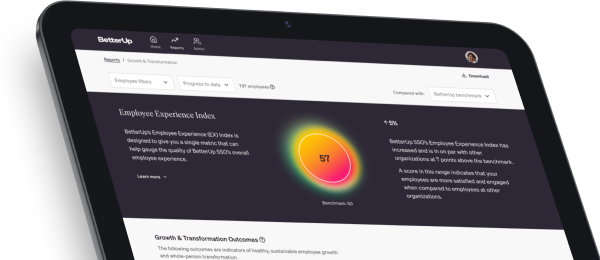Whether you’re starting your first job or looking to make a career change, you’re navigating a career landscape marked by constant change. The rise of automation, shifting cultural norms, and an increasingly interconnected world all present unprecedented challenges — and exciting learning opportunities.
To keep up, you must be agile, flexible, and ready to learn.
But as ready as you are to upskill so you can meet your industry’s ever-changing demands, you might not know what to learn. Perhaps you’re unsure of the capabilities you bring to the table and the improvements you can make to gain a competitive leg up.
The great news is that career development isn’t a solo journey.
Professional coaching offers you the opportunity to work with a business expert to determine your employee strengths and weaknesses. A professional coach will ensure you’re pursuing a lucrative and fulfilling career and offer insights into upskilling opportunities so you stand out from the competition.
What’s professional coaching?
Professional coaching is defined as advice and support offered by an experienced guide. Coaches start by understanding the basics: who you are, what you want professionally, and the knowledge, skills, and abilities you bring to the table. They also determine your motivators so they can encourage you effectively. Then, they create a game plan that includes strategies to help you set SMART goals and achieve them.
This process involves guided conversations and exercises that help you focus on your professional growth to set clear expectations and objectives. Coaches use different methods like free-flow journaling and brainstorming techniques to better understand your natural strengths, intrinsic motivators, and true professional desires.
You might attend professional coaching individually or with others, like if your employer wants the whole team to learn from an executive or leadership coach. And this guidance is helpful whether you’re job searching, starting a new job, or undergoing a career change later in life.
What does a professional coach do?
Pursuing professional growth is daunting work made easier with effective support. A certified coach aims to support human transformation while respecting each individual’s pace.
Here are a few things a professional coach will help you with:
-
Setting realistic goals: Your learning journey is unlike anyone else's. After getting to know your career vision and motivators, your coach will develop a strategic action plan suited to your learning style.
This plan will include goals you have the skill set and motivation to achieve, increasing the chance you’ll successfully execute the plan. And because you’re always part of the process, you’ll feel accountable for your actions and success, enhancing overall performance.
-
Improving self-confidence: You and your coach will build this action plan around your individual strengths — some of which you might not have noticed before. This personalized attention helps you step back and understand your capabilities and the unique value you bring to the world.
And achieving goals will also build your confidence as you enjoy the happiness that comes with achievement.
-
Staying motivated: Coaches leverage your unique motivators, keep you accountable, and remind you of the finish line — all of which can help you improve and maintain your motivation levels to achieve more.

What doesn’t a professional coach do?
While these coaches are dedicated to helping you become your best self, they’re only professional guides — not life coaches — and so the focus will be on career development. Here are a few things a professional coach won’t do:
- Resolve conflicts: While coaches can help you improve your conflict solution skills, they aren’t mediators who solve disputes for you. You’ll need to habituate these new skills to effectively tackle workplace conflicts yourself.
-
Give you all the answers: No one has all the right answers, including a coach. A coach's job isn’t to tell you what to do or how to act differently. Instead, they’re skilled at provoking self-reflection. By asking you thought-provoking questions, they help you discover solutions and draw your own conclusions. This builds the accountability needed to own your actions and create the change you seek.
-
Provide counseling: Although sleep coaches, wellness coaches, and life coaches can contribute to greater overall wellness, a coach can’t stand in for a mental health professional. Coaches concentrate on building and supporting action plans that help you achieve your goals, but they can’t unpack and psychologically assess stressors and mental health concerns.
-
Fix you: Improvement is a never-ending journey. A coach isn’t there to “fix you” with a snap of their fingers. Instead, they see you holistically, embracing your unique strengths and weaknesses and encouraging you to do the same.

Types of professional coaching
If it’s job or career-related, a professional coach can help. They can even guide you in sharpening your leadership skills, developing stronger team communication, and building inclusive work environments.
Here are some common types of coaching for professional development:
- Business coaching provides business owners, managers, and executives the guidance they need to run an organization. This might involve help with strategic planning, growth management, and decision-making. Whatever your industry, a business coach will help you deliver key company objectives.
- Marketing coaching teaches individuals and whole teams how to effectively engage a target audience. They’ll offer guidance on improving your marketing and branding strategies and engagement methods, as well as help you determine who your ideal client is.
- Sales coaching helps people learn how to successfully sell themselves or a product/service. These coaches will equip you with the necessary tools and strategies to anticipate customer needs and build long-lasting relationships.

Why is professional coaching in high demand?
According to a 2023 Gitnux report, the overall satisfaction rate of those who hire business and professional coaches is 95%. And the International Coaching Federation (ICF) found that in 2023, the most popular types of coaching are career-focused services, with both individuals and companies leveraging this leadership and executive guidance.
This signals the value coaches bring to those navigating a rapidly changing professional landscape, including recent adjustments to hybrid and remote work as well as organizations moving toward more diversity and inclusivity.
Coach versus mentor: What’s the difference?
While both coaches and mentors can help you reach your professional development goals, their roles and methods differ significantly.
A key difference is that mentors advise based on their expertise, while coaches train to provide strategies and advice no matter your industry. You’ll typically work with a mentor from your workplace or industry, like a manager or team lead, and a coach is likely an external entity. And mentors are usually unpaid, as it might be part of their managerial role to assist a direct report.
A mentor will offer guidance based on their personal experiences, making them excellent resources for subject-specific advice. And a coach will identify your strengths, weaknesses, and motivators to build targeted strategies based on your goals.
What to expect in a professional coaching session
Coaching is a highly personalized process built on collaboration. You and your coach will work together to identify your needs and capabilities, using this information to construct a comprehensive action plan tailored to your goals. This likely involves several 1:1 conversations throughout a set period.
Once you’re actioning your plan, you’ll meet with your coach at an approved cadence so they can gain progress updates and offer feedback and support. If you found your coach’s support valuable, you can sign up for more sessions.
And even if you meet the goals outlined at the start of the relationship, you’ll complete your coaching with tools and techniques you can take with you throughout your career.

How to find a professional coach: 3 tips
Finding the right coach is crucial to enjoying the process and reaching your self-improvement goals. Here are three tips to ensure you find your match:
-
Find someone who supports your goals: You’re the expert on you — and a great coach should support and prioritize your vision for your life. Attend your first session feeling clear on the general outcomes you’d like to reach throughout this coaching experience, reconsidering working with coaches who seem focused on promoting their own agenda.
At BetterUp, you can try initial sessions with several coaches to find the right fit. We can also recommend coaches with competencies suiting your needs.
-
Welcome their feedback: A coaching relationship is a back-and-forth exchange. Successful coaches help you self-reflect, often reframing your words and actions to develop deeper self-awareness. This is hard work for both of you, but it’s essential to move forward.
Pay attention to their questions and feedback. If you feel a mixture of challenge and comfort, it’s likely a positive sign that you’ve found a coach who will provide the support you need to leave your comfort zone.
-
Make sure you feel safe: Change is never easy, but compatibility is the key to finding comfort in the discomfort. Opening up and expressing your wishes will feel impossible if you don’t trust the person on the receiving end. It’s normal to feel incompatible with some people — thank them for the initial session and try someone else.
Level up your professional development
There’s a reason why professional coaching has become an indispensable tool for individuals and organizations. In today’s competitive and complex professional landscape, personalized guidance, actionable strategies, and continuous support can make the difference between growth and stagnation.
Whether you’re fresh out of school or considering a career change, the benefits of professional coaching are invaluable. But the key to making your coaching experience worthwhile lies in your willingness to collaborate. If you’re ready to challenge yourself, you’ll be rewarded with the opportunity to transform your personal and professional life.




-1.png)






